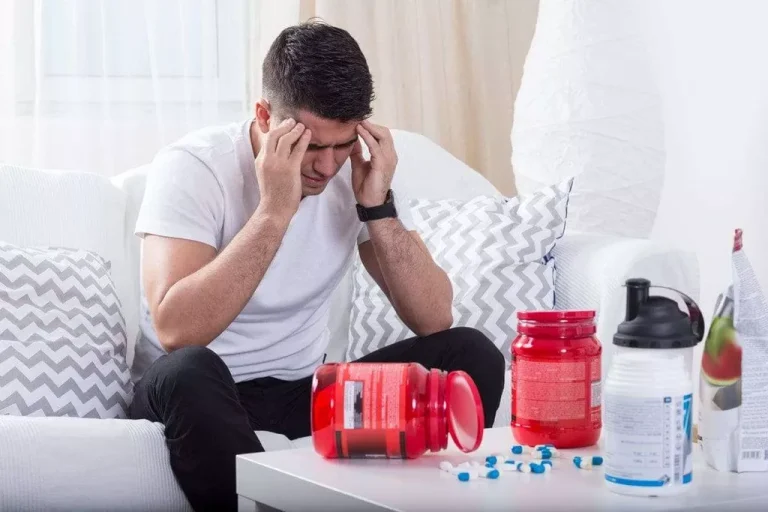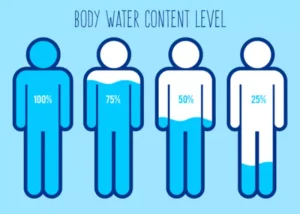
The more successful your early days in treatment, the likelier you’ll stick with the process and remain sober. In order to maintain sobriety in the months and years to come, you must also address the thoughts, feelings, and behaviors that led you to use substances; this is accomplished through drug addiction therapy. Some patients may fail to disclose preexisting health issues during medical and psychiatric screenings in order to be approved for rapid detox, which can have dire consequences. This is the final step of drug detox, where the chemicals are expected to have left the body. These statistics highlight that seeking help is paramount for successfully overcoming addiction, with detox at the heart for safely managing the substance absence aftermath.
The Process of Detoxification for Commonly Misused Drugs
- While naloxone has been on the market for years, a nasal spray (Narcan, Kloxxado) and an injectable form are now available, though they can be very expensive.
- Preventing withdrawal symptoms involves medical drug detox, gradually tapering off the substance while managing symptoms.
- Withdrawal from different categories of drugs — such as depressants, stimulants or opioids — produces different side effects and requires different approaches.
- Detox and rehab facilities are located throughout the U.S., and many offer specialized treatment that can cater to individual needs.
Looking for treatment for opioid addiction for yourself or your loved one? Buprenorphine is effective, safe, and hopefully on the way to becoming more widely accessible. If you or a loved one are seeking recovery services that accept your medical insurance, reach out to Infinite Recovery today. At Infinite Recovery, support for clients extends past the symptoms of withdrawal.
How to Find the Right Detox Program

Inpatient programs that offer medication, such as methadone and buprenorphine treatment programs, tend to be the most expensive. Residential detox programs offer 24-hour medical supervision and care, which can be useful when going https://ecosoberhouse.com/ through withdrawal from highly addictive drugs with dangerous withdrawal syndromes. Some people can detox successfully as outpatients while still receiving medical supervision and any medications that are deemed necessary.
It’s Not the Drug Cravings, You’re Just Hungry
Benzodiazepines are sometimes used in the short term and under close medical supervision to treat anxiety and similar symptoms for some people going through detox. Unfortunately, there is no “one-size-fits-all” medication for people experiencing withdrawal from drugs and alcohol. In order to avoid severe complications, attending an inpatient or outpatient detox program is strongly recommended. Individuals stopping alcohol or drug use from home, and without assistance, may experience severe side effects, like seizures. When a person is dependent on a substance, they will experience withdrawal symptoms if they stop abusing the substance.
What Are the Dangers of Rapid or Ultra-Rapid Detoxification?
- A medically assisted detox can reduce withdrawal symptoms and ensure safety.
- This method was originally developed for people addicted to opiate drugs like heroin and painkillers.
- Someone in recovery from an alcohol use disorder will need a well-rounded diet to combat the often severe malnutrition.
- We do not offer individual medical advice, diagnosis or treatment plans.
Using medications to control the symptoms of withdrawal depends on the substance and severity of the symptoms. This setting may be appropriate for those with mild to moderate withdrawal symptoms. If more drug detox severe symptoms arise, you can be placed in a hospital or another setting that offers a higher level of care. Common withdrawal effects may include nausea, anxiety, insomnia, and intense cravings.

Eating a diet rich in prebiotics keeps your digestive system healthy, which is important for proper detoxification and immune health. Research links high consumption of sugary and highly processed foods to obesity and other chronic diseases, such as heart disease, cancer, and diabetes (27, 28, 29). Health authorities recommend limiting alcohol intake to one drink per day for women and two for men. If you currently do not drink, it is recommended not to start as the risk outweigh any health benefits that come with drinking. However, popular detox diets rarely identify the specific toxins they aim to remove or the mechanism by which they supposedly eliminate them.

- With medication-assisted treatment, certain prescriptions are given to assist with recovery and help you cope with the symptoms of detox.
- Some inpatient detox programs rely on peer support along with some medical care.
- A safe, supervised environment that prevents access to substances also protects people and encourages their progress toward recovery.
In some individuals, however, vitamin and mineral supplementation may be recommended to ensure the body has the building blocks necessary to support its natural detoxification processes. If you’re experiencing distressing symptoms, talking with a doctor who’s trained in integrative or functional medicine may provide clarity and methods for a safe, effective protocol. Many functional medicine programs also analyze specific genetic variants to help individuals determine if they are having a personal issue with detoxification. If you are suffering from substance abuse or addiction, visiting a physician for a physical exam is a good starting point in your treatment. A doctor will be able to determine if your substance abuse has caused any physical damage and if any medical care will be necessary during detox.
Benefits of drug and alcohol detox
Once you’ve received some recommendations, you will want to do your own research regarding the different types of detox services available. When an individual consistently or repeatedly uses a substance, it is likely that they will develop physical dependence over time. Physical dependence is the body’s natural adaptation to the presence of a drug and, once it is significantly established, the body requires the drug to function as normal. Make sure to talk with a healthcare provider before going through a substance detox (stopping use of a substance). In some cases, the process can be dangerous, as there are potential complications.

